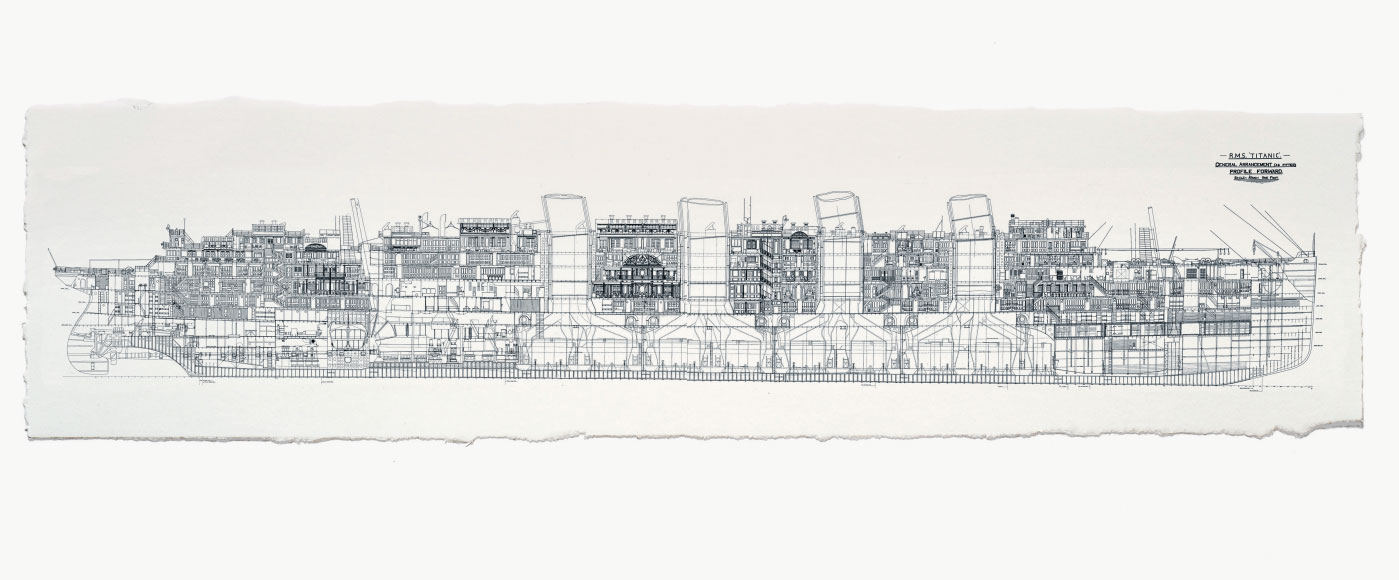
When Annie Atkins faked the plans for the Titanic
The designer favoured by Steven Spielberg and Wes Anderson sometimes breaks the rules to tell a great story
Annie Atkins, might be the author of Fake Love Letters, Forged Telegrams, and Prison Escape Maps, but she’s a graphic designer for film and TV productions, not a master forger. She understands that, when it comes to handsome graphic props, a dramatic image drives a narrative forward more effectively than a period-correct recreation.
“Nine times out of ten, a director will forego historical accuracy when it comes to a graphic,” she writes in her new book’s introduction, “we’re telling a story, not making a documentary.”
Besides, a line-by-line copy of certain designs isn’t always possible anyway. Take Atkins’ work on Titanic: Blood and Steel, a big-budget TV series about that fateful ship, which was aired in 2012, to mark the centenary of the ship’s sinking.
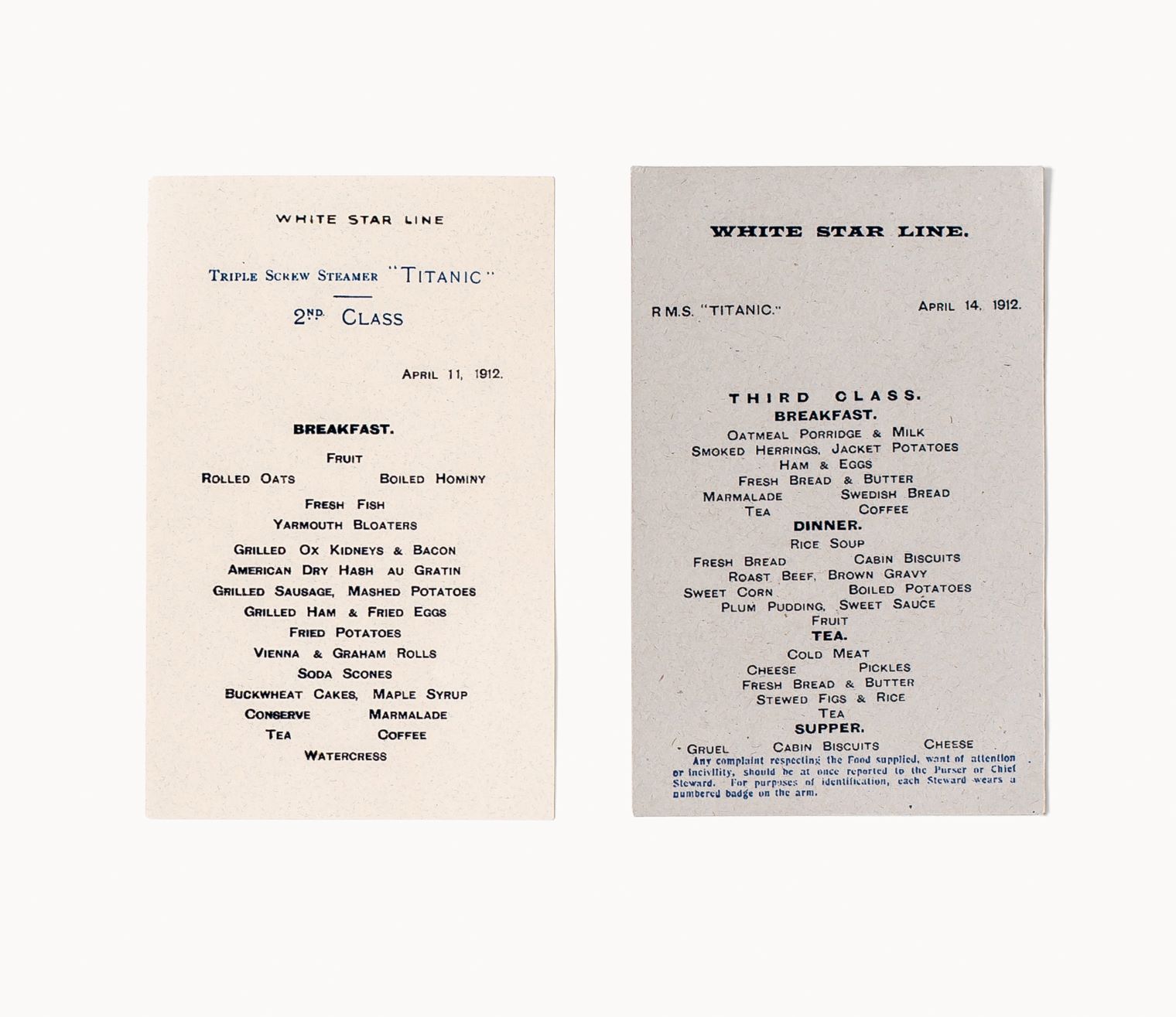
Atkins had to prepare a huge amount of material, from the ship’s blueprints through to its menu cards. However, the owners of these original images were proving less than helpful.
Having failed to gain consent from the owners of the original plans, she flew to Scotland to study the documents for another, similar shop: the RMS Lusitania.
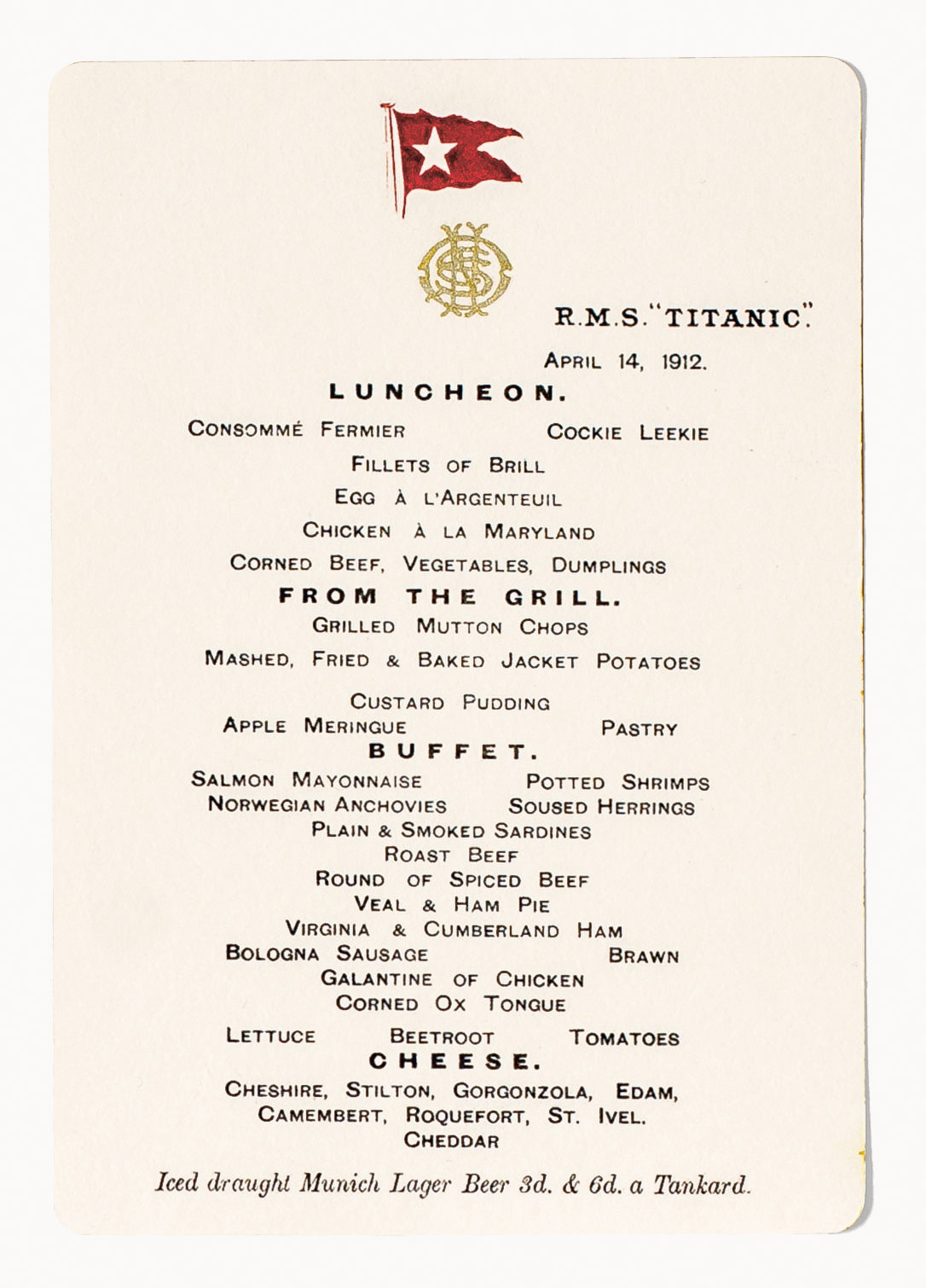
“The Lusitania is sometimes thought of as the Titanic’s sister ship, as it was similar in both its size and fate,” Atkins writes. “Three years after the Titanic hit the iceberg, the Lusitania was hit by a German U-boat off the south coast of Ireland—and most of its twelve hundred passengers and crew drowned while waiting to be rescued.”
Unfortunately, a minor misfortune befell Atkins after these fake plans were on the set. “One of the stagehands had pointed out that the Titanic actually had three working funnels, and this ship seemed to have four,” she recalls.
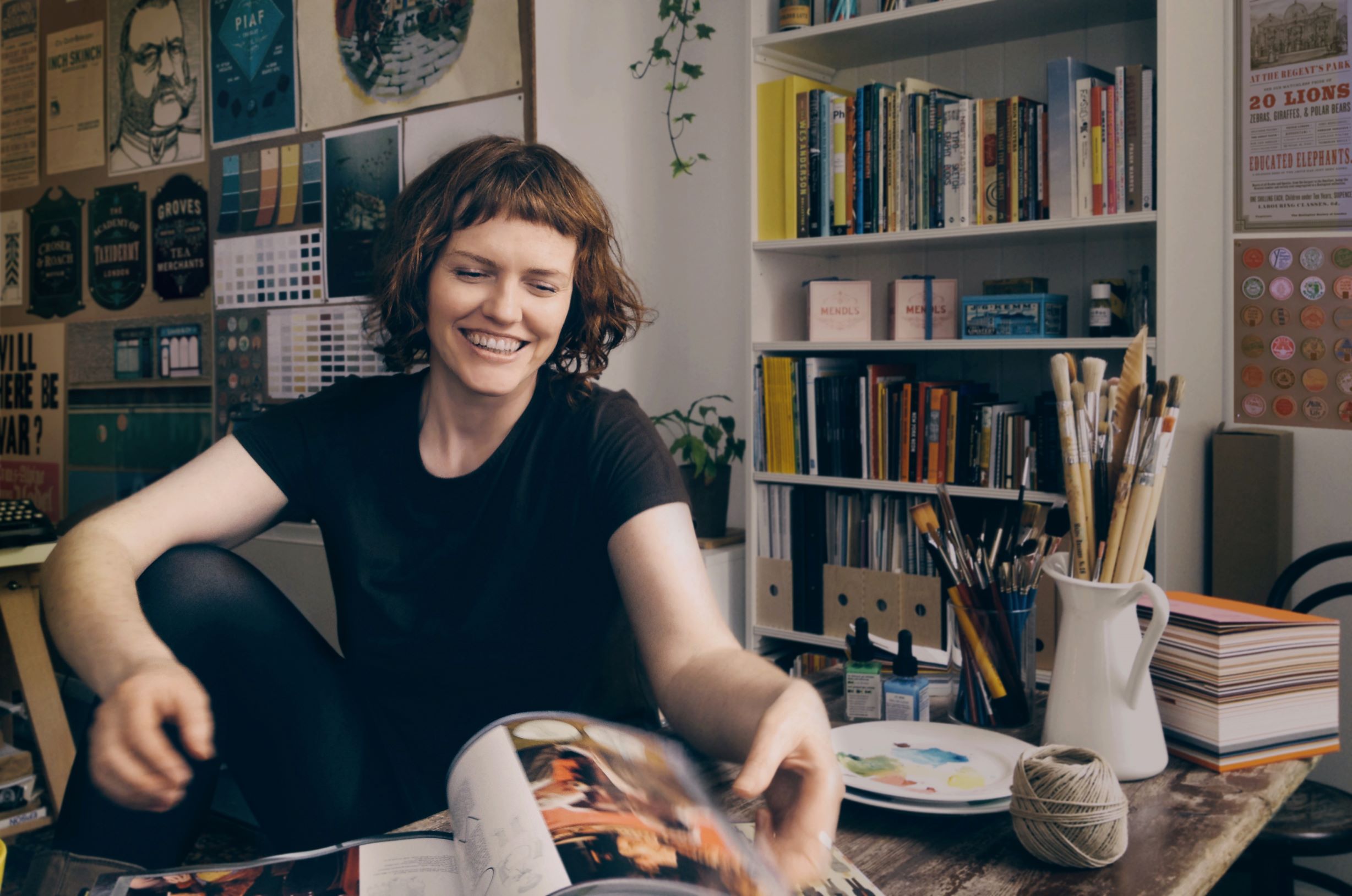
“In the early 1900s funnels were symbols of speed and safety and the White Star Line wanted their newest ocean liner to be able to compete with its rival, at least on the outside: the Titanic’s fourth smokestack was actually only a dummy, containing a first-class smoking room,” she goes on to explain.
Would keen-eyed viewers see that the plans that Atkins had provided featured a fully working fourth stack, rather than a faux funnel? Probably not. The show’s production designer ruled that the discrepancy was so small that it was unlikely to detract from the show.
No such problems arose with Atkins’ menus, which list the food served to first, second and third class passengers, with pinpoint accuracy, showing the sharp inequalities present in Great Britain at that time. The only thing distinguishing Atkins’ cards from the real ones is an image of the quadruple-funnelled ship itself.
“The three replicas shown here were made without the printed photographs of the ship as they appear on the originals,” she writes. “We just didn’t have the budget to pay the licensing fee.”
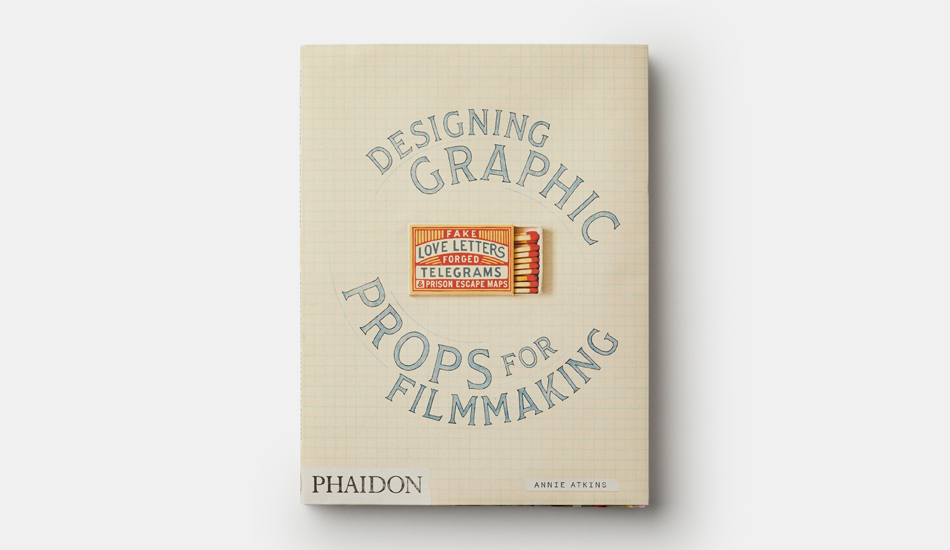
But she didn’t let that stand in the way of a good story. For more graphic tales from sets such as Isle of Dogs, Bridge of Spies and The Grand Budapest Hotel, order a copy of Fake Love Letters, Forged Telegrams, and Prison Escape Maps here.